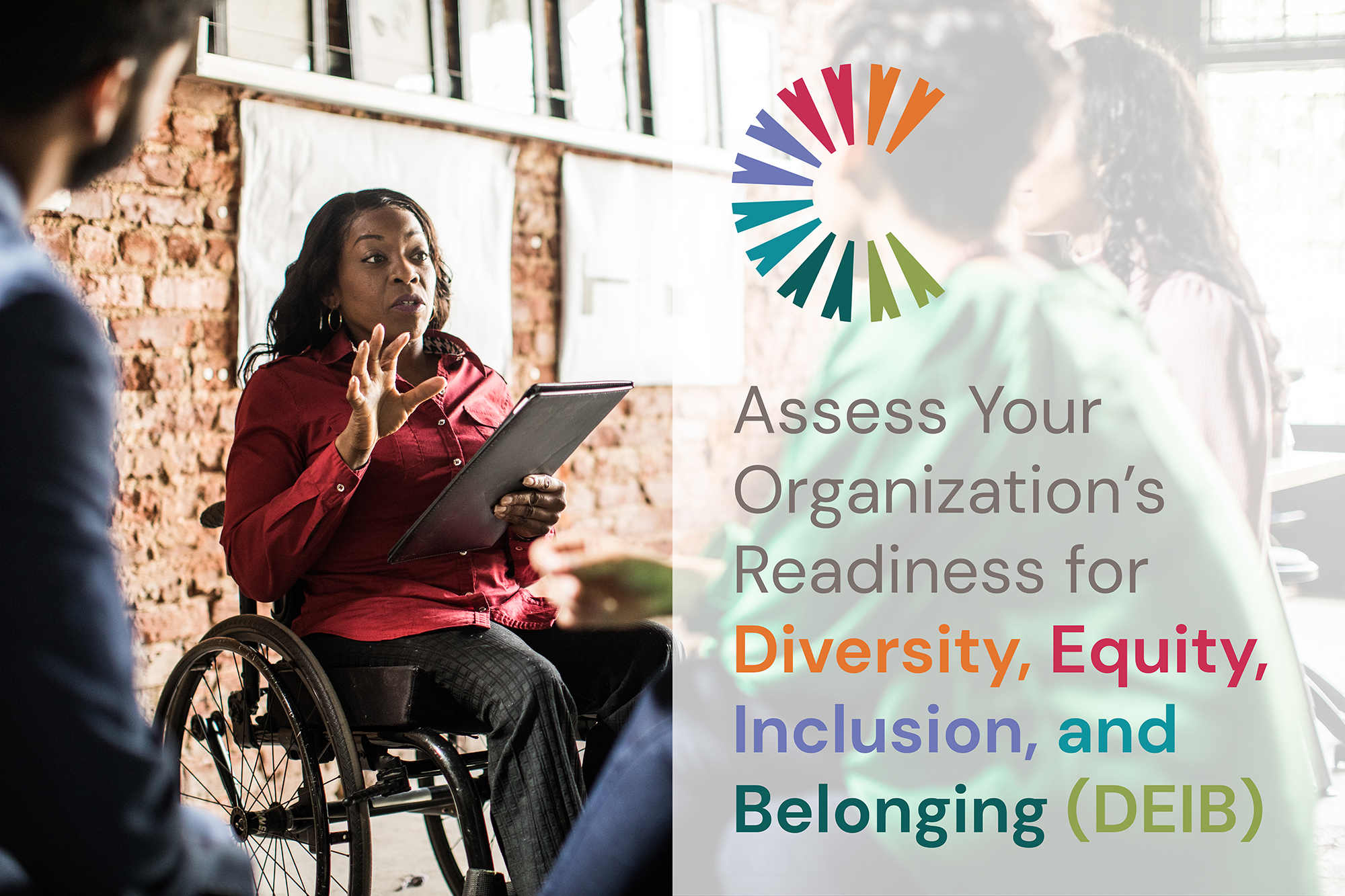The understanding of Diversity, Equity, and Inclusion within the workplace has evolved significantly over the past sixty years or so. As a nation, we have seen continuous efforts to challenge and transform our systems, policies, and practices that perpetuate inequities based on race, ethnicity, gender, sexual orientation, and other dimensions and intersections of diversity. We have made our best efforts within our discretionary power to act by establishing awareness and transforming mindsets, behaviors, and practices to create and sustain a diverse and inclusive environment for all.
In this practice, we have learned that diversity and inclusion (or D&I) are not enough in a society that is governed by systemic inequities. This understanding has helped us move towards a lens of diversity, equity, and inclusion (or DEI). Within our efforts for equity, we have also realized that more needs to be done to acknowledge the systemic and institutionalized racism that has historically disadvantaged certain racial and ethnic groups, leading to disparities in areas such as education, healthcare, employment, housing, and criminal justice. Achieving racial equity is no easy feat and requires organizations to address and dismantle these systems of oppression and rebuild a social structure that is just and equitable and values every member of society.
Much of this work requires a people-centered approach that engages people within our organizations to see themselves as a contributor and value-add to this work. It starts with us recognizing our humanity enough to create a work environment that allows people to feel valued, supported, and have a sense of belonging. Belonging at work refers to the sense of feeling accepted, valued, and respected as a member of a workplace community. It is a fundamental aspect of a positive and healthy workplace culture and contributes significantly to employee engagement, job satisfaction, and productivity.
Diversity, Equity, Inclusion, and Belonging (DEIB) is a crucial aspect of modern-day organizational culture, and its implementation can make a significant difference in the success of an organization and our social efforts toward advancing equity. DEIB in practice is essential for building a workforce that represents the diverse communities it serves and fostering a culture of inclusivity, where every employee feels valued and empowered to contribute their best work. However, achieving DEIB in an organization requires more than just a few changes to HR policies or diversity training. It requires a fundamental shift in organizational culture, mindset, and behavior.
Organizations can determine if they are ready to advance their DEIB initiatives by assessing their current state of DEIB practices and evaluating their readiness to commit to and invest in DEIB efforts. Here are some steps an organization can take to assess their readiness:
Conduct a DEIB Assessment: Organizations can assess their current state of diversity, equity, inclusion, and belonging by gathering data on demographics, representation, inclusion, and sense of belonging within their organization. This can be done through employee surveys, focus groups, interviews, and analysis of HR data across the organization.
Evaluate Leadership Support: Evaluate whether the leadership team is committed to DEIB initiatives and willing to allocate resources and time towards this effort. DEIB should be a strategic priority that aligns with the organization’s mission and values.
Assess Organizational Policies and Practices: Review current policies and practices to identify any barriers, challenges, and biases that may hinder diversity, equity, inclusion, and belonging efforts. Identify areas where changes can be made to support DEIB efforts.
Engage Stakeholders: Engage employees, clients, community partners and other external and internal stakeholders in the DEIB initiative. Seek feedback and input to understand what DEIB efforts are needed and why.
Centering Diversity, Equity, Inclusion and Belonging (DEIB) takes more than just words, it takes action. The Connection offers training and consultative services that include DEIB and Racial Equity assessments. Director of Diversity and Social Impact, Mariana Serrano, will provide DEIB tactical actions and strategies to move organizations in a more inclusive direction, which can include coaching and technical assistance for implementation. The Connection’s Institute for Innovative Practice can also provide customizable training and leadership development workshops that encourage meaningful conversations centered around racial equity, inclusion and belonging. Our programs assist organizations to define measures of success and establish accountability, while providing support for leadership, key stakeholders, and employees through this adaptive process.
Our hope is that in partnership we create a plan and implement specific DEIB practices to encourage meaningful connections across organizations, ultimately leading to a more inclusive, equitable, and diverse workplace and improved systems across Connecticut and beyond.
About: For fifty years The Connection has served as a statewide human services non-profit providing unique solutions to the problems of homelessness, mental illness, substance use, and community justice rehabilitation. The Connection has founded a social enterprise, The Institute for Innovative Practice. The Institute provides quality professional development, training, and consultation to help people, communities, and organizations meet their mission. The proceeds from The Institute are reinvested into The Connection’s programs. Find out more information on our website.
